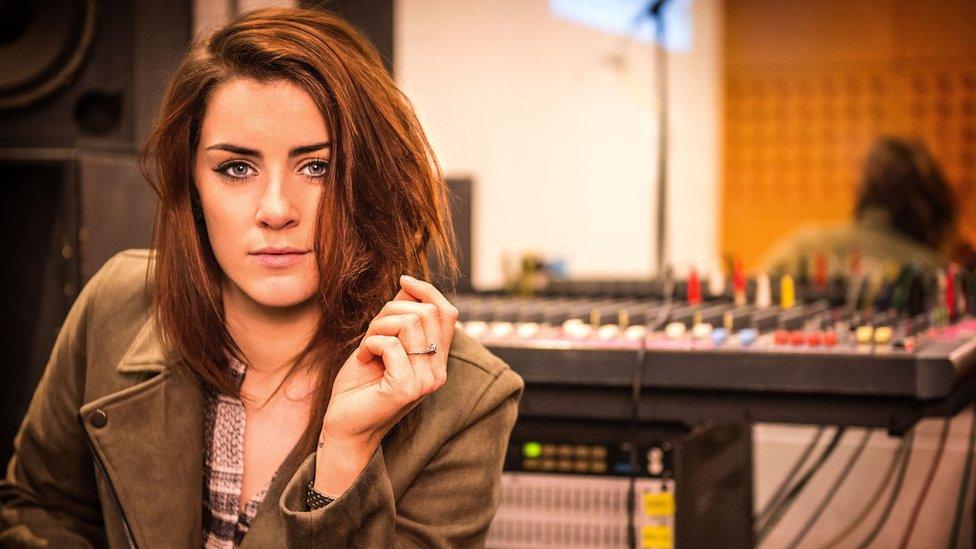Eurovision 2017: Why Ukraine and Russia are facing off
- Published
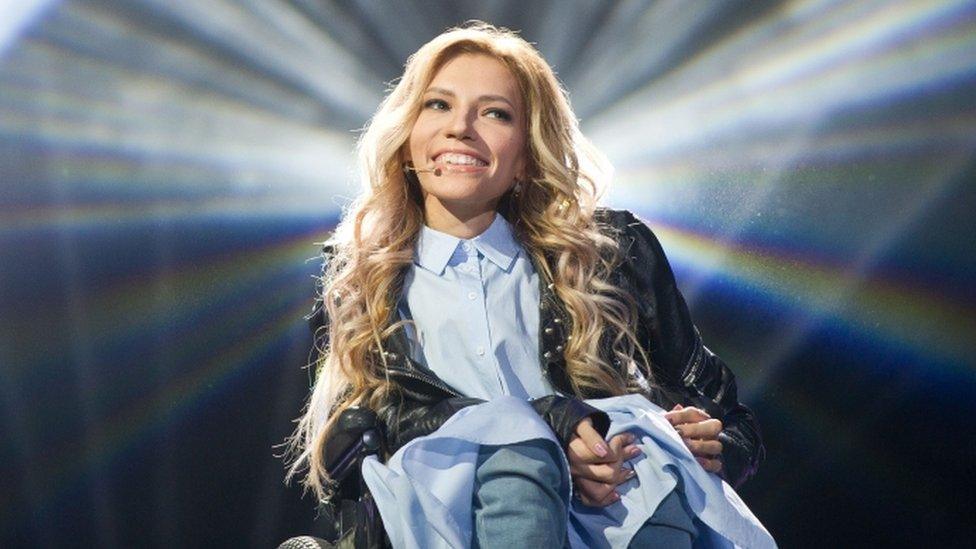
Russian singer Julia Samoilova has been denied a visa to perform in Kiev
The Eurovision Song Contest, an annual pop extravaganza where each country sends an act to compete for others' votes, is never just about the music.
Some would cite its unrivalled commitment to sequins - others, the fiercely biased voting.
Until recent years, though, there was little about the competition that would give politicians sleepless nights.
But now a fierce row between Russia and this year's hosts - Ukraine - has seen a warning letter from Eurovision's organisers land on the Ukrainian prime minister's desk.
So what's the cause of the conflict, and how did it get this far?
What's the problem?
A record 43 countries from the European Broadcasting Area, external were due to don their finest spandex this year.
But last month, Ukraine banned Russia's chosen artist, Julia Samoilova, from entering the country for three years.
Why? Because in 2015 she made what it calls an illegal visit to sing in Crimea - which was annexed by Russia three years ago - entering via Russia rather than the Ukrainian mainland.
Russia and Ukraine have been at loggerheads since the annexation and subsequent fighting in east Ukraine, which Moscow is accused of stoking.
Ukraine is hosting Eurovision because its singer, Jamala, won in Sweden last year. She took the crown with 1944, a song about Josef Stalin's mass deportation of Crimean Tatars during World War Two.
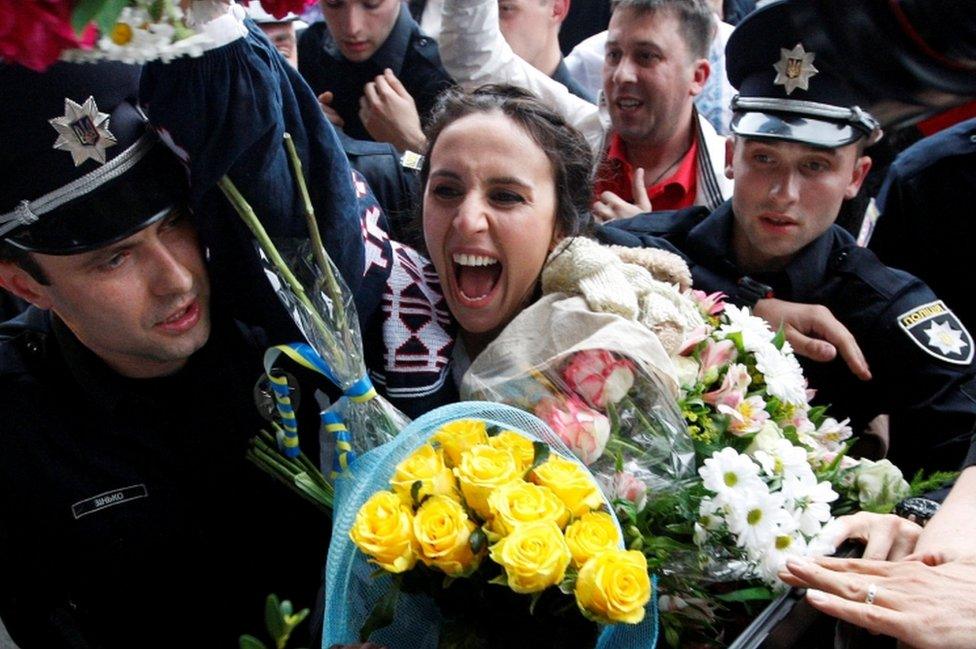
Jamala won last year's Eurovision for the Ukraine - meaning the country will host 2017's festivities
Russia, who were favourites in the run-up to the event, limped home in third.
Moscow is especially irked by the ban on Samoilova, 27, as she uses a wheelchair and the slogan of this year's Eurovision is "Celebrate diversity".

So Russia is fuming...?
Outrage is an understatement.
A deputy foreign minister called the ban on Samoilova outrageous, cynical and inhumane.
One MP is demanding that the contest be moved to another country, while a second warned that Russia would boycott every Eurovision to come unless organisers intervened to resolve the row.
Russia's Channel One, which broadcasts Eurovision, said in a statement: "Ukraine didn't even have the common sense to make use of this opportunity to look like a civilised country."
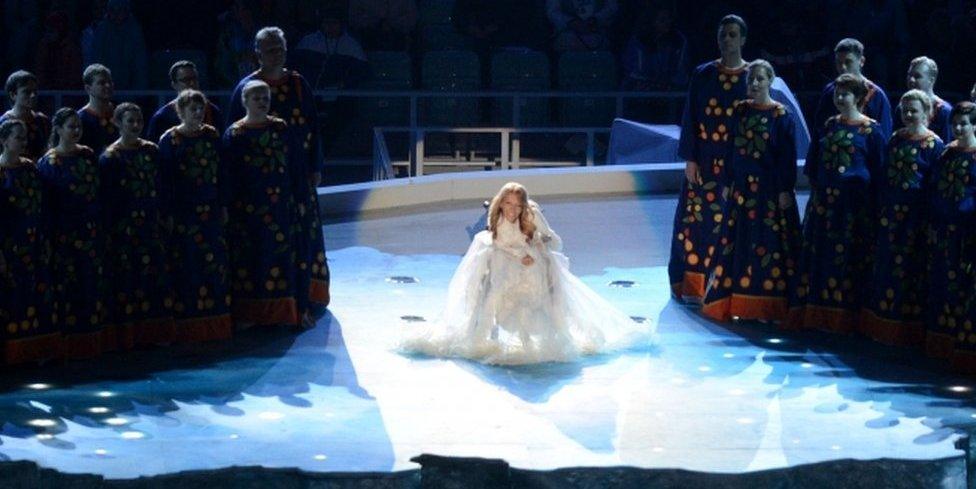
Samoilova performed at the opening ceremony of the 2014 Winter Paralympic Games in Sochi
It also refused an offer by Eurovision to have Samoilova join in the competition remotely, via satellite.
"We find the offer of remote participation odd and refuse it, for it is going absolutely against the very essence of the event," the official Russian broadcaster said.
According to the BBC's Sarah Rainsford in Moscow, some suspect Moscow knew what would happen when it chose Julia Samoilova, knowing that she had travelled to Crimea.

What was in that letter?
Eurovision organisers want the focus on the event, not the politics.
The European Broadcasting Union (EBU), a group of public media outlets that produces Eurovision, is demanding that Kiev let Samoilova perform.
Otherwise, it says, Ukraine faces the threat of exclusion from future contests.
Ingrid Deltenre, head of the EBU, wrote to Ukraine's Prime Minister Volodymyr Groysman on 23 March to issue the warning.
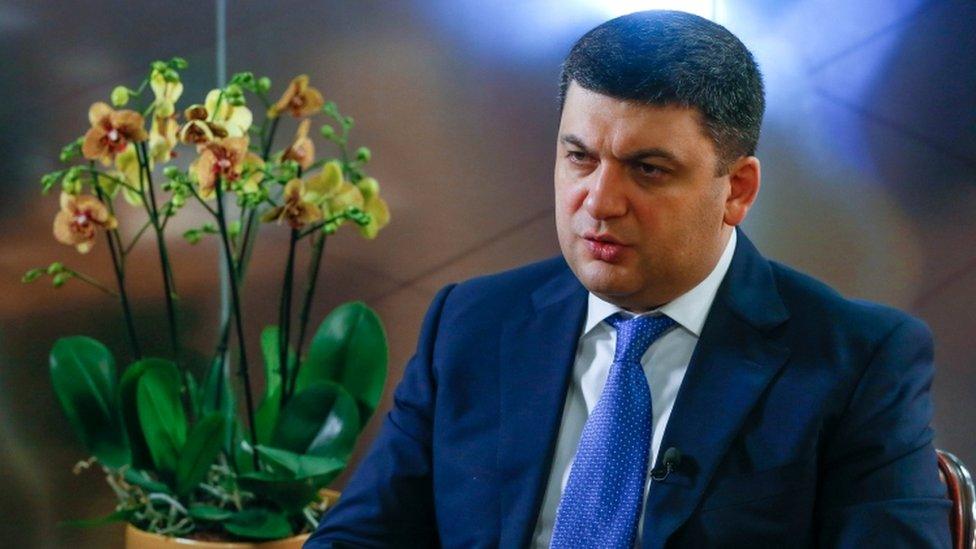
Eurovision chiefs have written to Ukrainian Prime Minister Volodymyr Groysman
"No previous host country has prevented an artist performing at the Eurovision Song Contest and the EBU would not like a precedent to be set in 2017," she wrote, external in the letter leaked to media.
"We consider the current ban of the Russian singer as unacceptable. As a consequence the UAPBC [Ukraine's National Public Broadcasting Company] might be excluded from future events."
"We are increasingly frustrated, in fact angry, that this year's competition is being used as a tool in the ongoing confrontation between the Russian Federation and Ukraine," Ms Deltenre added.
She said that if Kiev didn't lift its ban, "it would certainly have a very big negative impact on Ukraine's international reputation as a modern, democratic European nation".

What happens now?
The Eurovision song contest will be held in Kiev on 13 May - and we can expect the same kitsch pop-fuelled love-in as usual.
But whether Russia's act will take the stage is still unclear.
Samoilova has said she is "not upset" by Ukraine's decision.
The singer told Russia's state-controlled television she did not understand why Ukraine saw "some kind of threat in a little girl like me".
"I will keep going," she added. "I somehow think that everything will change."

Who is Julia Samoilova?
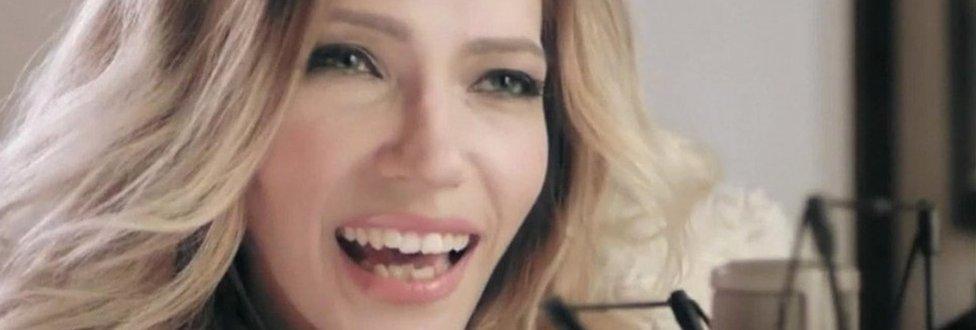
Samoilova was selected just one day before the 13 March deadline for nomination
Born in April 1989 in Ukhta, Russia
Her song Flame is Burning was composed by Leonid Gutkin, who also produced Russia's 2013 and 2015 entries
Has been in a wheelchair since childhood, suffering from spinal muscular atrophy: a neuromuscular disorder causing muscle wastage
She was a 2013 finalist in Russia's X Factor competition and performed at the opening ceremony to the 2014 Sochi Winter Paralympics

- Published23 March 2017
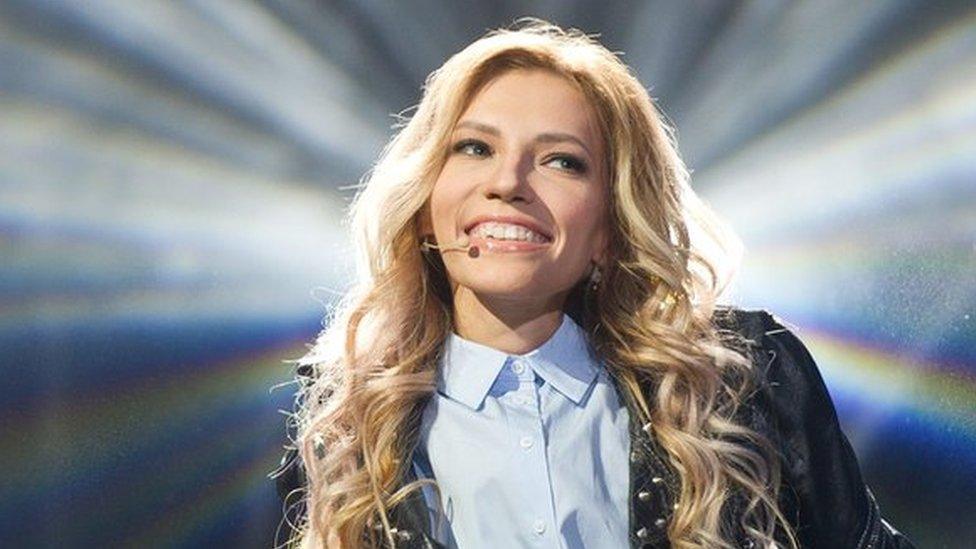
- Published3 March 2017
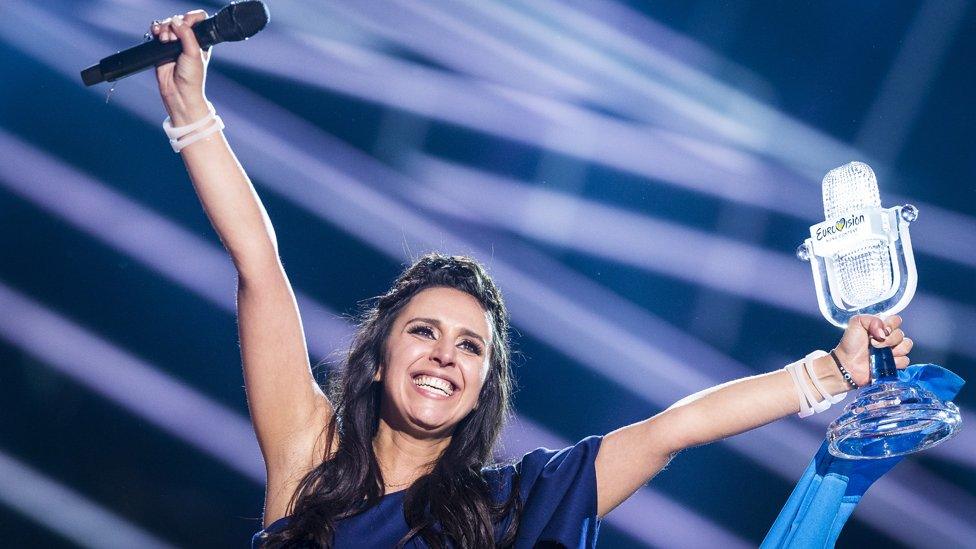
- Published22 March 2017
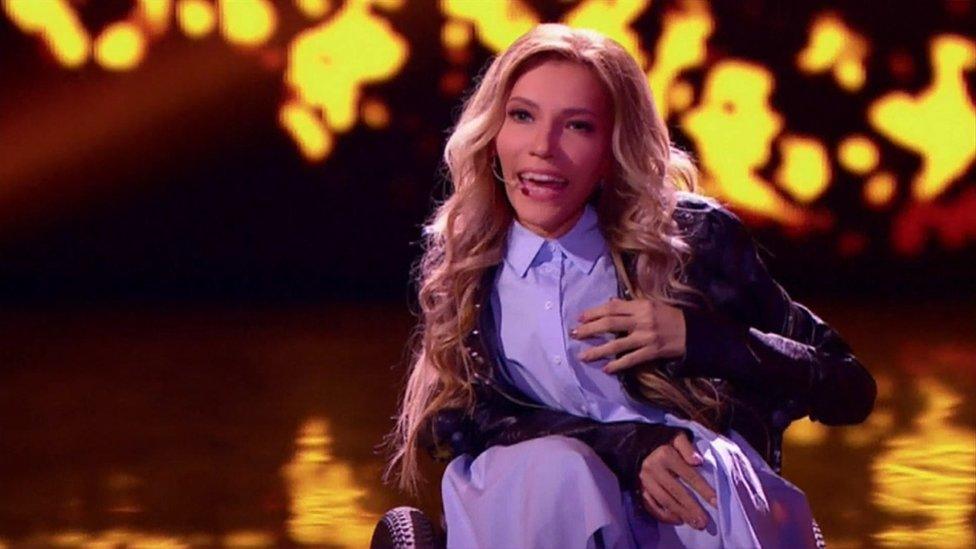
- Published28 January 2017
